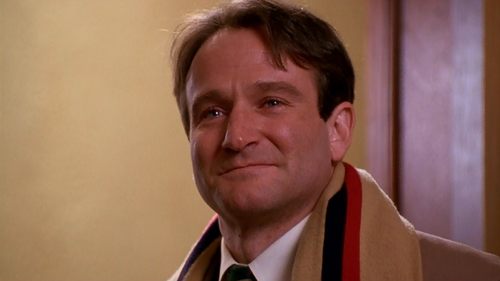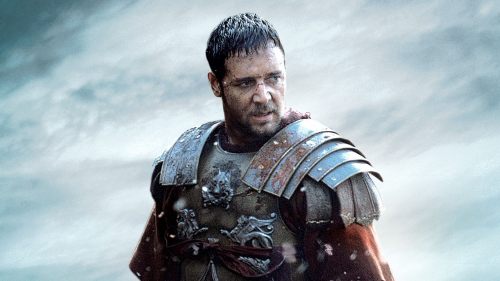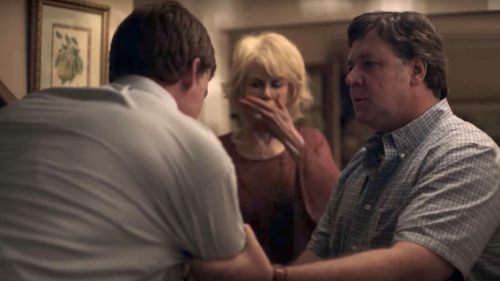Discipline Counts As Much As Courage: MASTER AND COMMANDER At 15
If Film Twitter is to be believed, Peter Weir’s Master and Commander: The Far Side of the World is a film that people seem highly interested in being turned into a franchise - but it’s also one I rarely hear anyone talk about except in that context. Even though I thought it was a remarkable film upon its release 15 years ago, and myself thought “hell yes, they should make more of these,” I watched it for only the second time when I recently unearthed my DVD copy, sealed no less, to prepare for its anniversary. What I realized upon that second viewing is that, yes, it remains remarkable, a handsome and extraordinarily skilled portrait of seafaring life, but its own open-endedness, bolstered by terrific performances by Russell Crowe and Paul Bettany, makes it a perfect single-serving adventure that deserves more to be revisited than extended.
Weir, working from a script he co-wrote with John Collee based on Patrick O’Brian’s book, does some of his best work, not just rendering life in the Royal Navy in wonderfully, intimate, vivid terms, but creating a philosophical divide between its two lead characters, Captain Jack Aubrey (Crowe) and Dr. Stephen Maturin (Bettany) as the HMS Surprise pursues the French privateer Acheron across the high seas. Critic Mick LaSalle astutely observed that the two characters are a bit like Star Trek’s Captain Kirk and Dr. Leonard “Bones” McCoy, albeit without a Mr. Spock to balance them out; the actors’ chemistry nevertheless prevails over the occasional familiarity of their disagreements - Aubrey’s obsession with chasing the Acheron blurs the line between duty and pride, while Maturin’s protective attitudes towards their fellow sailors, and his own aspirations as a Naturalist, undermines the clarity of the chain of command.
Master and Commander arrived in theaters just months after Disney’s successful launch of the Pirates of the Caribbean series, and given its reliance on storytelling and ensemble performance over, well, the indefatigable charisma of a single actor chewing scenery like it’s a particularly appetizing pot of ship-made gruel, it’s easy to understand why adults would love to see another one of O’Brian’s adventures brought to the screen. Weir loves all of his characters, especially the fragile, failing ones, and he explores their vulnerabilities - and hidden strengths - as they attempt to survive cannonball attacks, seas that are intermittently stormy and dead calm, superstition, and the intimidating certitude of a Captain who seems knowledgeable about everything except for defeat. The movie’s finale, a rallying cry to pursue the Acheron after Aubrey learns he’s been tricked by its defeated Captain, even introduces the possibility of an adversary formidable enough to be worthy of a sequel showdown.
But the film isn’t really about the Acheron, or about the Napoleonic Wars, or any of the larger political complexities of the era. It’s about what life - and death - felt like aboard one of those ships during that time and quite frankly under the best of all possible circumstances of leadership. Aubrey is inspiring but even he cannot combat the claustrophobia, the jostling irregularity of the sea, which threatens to capsize the ship in one scene and indefinitely leave them sitting, unable to escape the sun, in the next. Mended sails, scrubbed decks, and on-the-fly repairs are the norm, and they’re unglamorous, back-breaking, and soul-crushing. There’s almost something comforting in the belief that Midshipman Hollom (Lee Ingleby) might be the cause of the ship’s misfortune; notwithstanding the threat to morale, it enables the other men to personify their frustrations which are ultimately and inescapably existential. The Far Side of the World is about being taken away from anything resembling one’s home, put to work on the deck and in the bowels of a great ship, and then dealing with the simple truth that this now is your home, and you’d better make the best of it.
There are great, rousing action scenes, including two major firefights between the Surprise and the Acheron, which more than provide the kind of thrills that put it in league with the likes of Gore Verbinski’s original Pirates. But the best scene in the film by far is one in which Maturin, having been accidentally shot in the abdomen by another sailor, performs surgery on himself after a backup physician is clearly not competent to do so. It combines real human drama - will he live or die - with the suspense of whether or not one can even do such a thing, and then adds the emotional weight of having Aubrey be there by Maturin’s side, watching his best friend and colleague lay at death’s doorstep. Aubrey’s bluster that he’s experienced war wounds before quickly crumbles as he averts his eyes from the procedure - a moment that’s equally funny and heartbreaking as he simultaneously suppresses his own discomfort and fervently worries for Maturin.
At a rumored cost of $150 million, the film’s $212 million box office haul was not quite enough to justify that sequel that people seem to keep asking for, but ultimately, that request also sort of misses the point. Certainly following these two characters, watching their dichotomy unfold against the backdrop of other scenarios, could be fascinating. But even with a possible arch-nemesis as smart and resourceful as Aubrey waiting to be explored, Master and Commander has accomplished its mission, because there will always be another foe, another battle, another ideological divide to cross between the captain who leads his men to war and the doctor who patches them up afterwards. And in between them, there remains the messy, inescapable humanity that’s much less exciting or glamorous, but far the most essential, and relatable, part of the journey.



